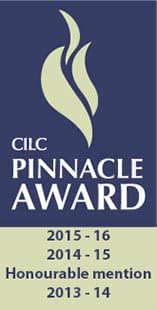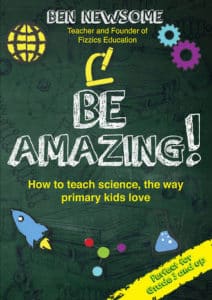
Woohoo! This was great news coming into the weekend 🙂
We’ve been running science classes across the world using video conferencing technology and over the past few years, we’ve been quite involved with delivering programs to schools in North America via the Center for Interactive Learning and Collaboration (CILC). As part of ensuring that quality distance learning programs are delivered, the Pinnacle Award is given annually to content providers who consistently deliver outstanding scores on program evaluations submitted by educators and end users of video conferencing educational content. Each school year, the scores of all program evaluations for each content provider are averaged. The score is derived from 7 questions which have a numerical value assigned to their responses and which drive a public star rating system on the CILC website. The Pinnacle Award is not limited to one winner, rather it is a high benchmark to be met and is designed to inform teachers which of the 270+ content providers on CILC have engaged with schools with rich, meaningful learning experiences.
“CILC takes pride in its assurances to members that programs are high-quality, evaluated by educators for educators. Evaluations recognize not only the quality of content but the ability to engage learners. A Pinnacle Award recognizes the best of the best and is a proud badge of excellence. Congratulations, Content Providers!”, said Glenn Morris, CILC Executive Director
What makes video conferencing lessons engaging for learners? Well, at Fizzics Education we design our distance science lessons to hit several simple points:
- Does the program directly address the curriculum?
- Do the students get to do anything?
- Can hands-on activities be run with simple materials from the local shops?
- Are we showing students science experiments that they would not be able to do at school?
- What is the best technology to run the video conference with the students (H.323 video or web conference?)
- Importantly, if a student is 30 meters away from the screen in their room… are we engaging enough for them to want to be involved.
In a previous blog, I outlined some top tips for teaching via video conference that might be of use to you. You might also want to read my full 2013 Churchill Fellowship report and findings in ‘Best practice in science education via video conference’ as well.
If you are wondering what a science video conference looks like, the following video shows some highlights:
… and a teacher professional development version…
If you want to know more please don’t hesitate to get in touch with us.
Anyway, we’re very happy to have again picked up the award 🙂
It’s time to get back to work again!
NEW Primary science teaching book!
“Be Amazing! How to teach science, the way primary kids love”



























Comments